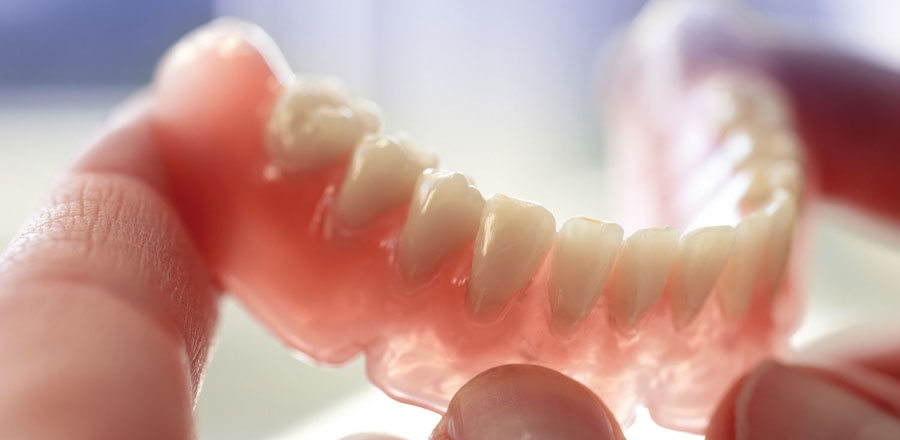
Nylon prosthesis is a thin sheet of nylon-containing material with artificial teeth. Installation of nylon prosthesis requires no turning the adjacent teeth; they are fixed by a snug fit to the gum and special clasps. Today prostheses of nylon have a soft, flexible structure, they are lightweight and therefore easily fixed in the oral cavity.
Advantages of nylon dentures:
- hypoallergenicity;
- it is difficult to distinguish them from the natural teeth; they are not visible during the conversation. They are also called “invisible dentures”;
- fixing the prosthesis is sufficiently reliable, and therefore there is no need to use additional fixing compositions - gels, creams, adhesives for dentures;
- flexibility and ease of prosthesis material reduces the period of adaptation;
- they can be used up to 5-7 years.
Disadvantages of flexible nylon dentures:
- Inadequate distribution of pressure when chewing food.
- The need for constant good care. There is an increased risk to scratches and discoloration of the prosthesis because of the softness of the material. Slight scratch dentures well absorb odors and color of food and liquids and keep them very firmly.
- The high cost of nylon dental prosthesis.
How to care nylon prostheses:
- After each meal you need to rinse the mouth with running water and clean the tooth structure from particles of food stuck in it.
- All operations are carried out with the prosthesis over a sink filled with water or folded with a towel to prevent damage to the artificial teeth if it falls.
- Hygienic oral care should be carried out at least twice a day with special soft toothbrush and toothpaste recommended by your dentist.
- Despite having a smooth surface of the denture base, the design needs regular disinfection. It can be carried out with the help of ultrasound. For this purpose you may use ultrasonic bath.

 +375 29 5711114
+375 29 5711114.png) +375 29 3285214
+375 29 3285214 +375 17 3075214
+375 17 3075214